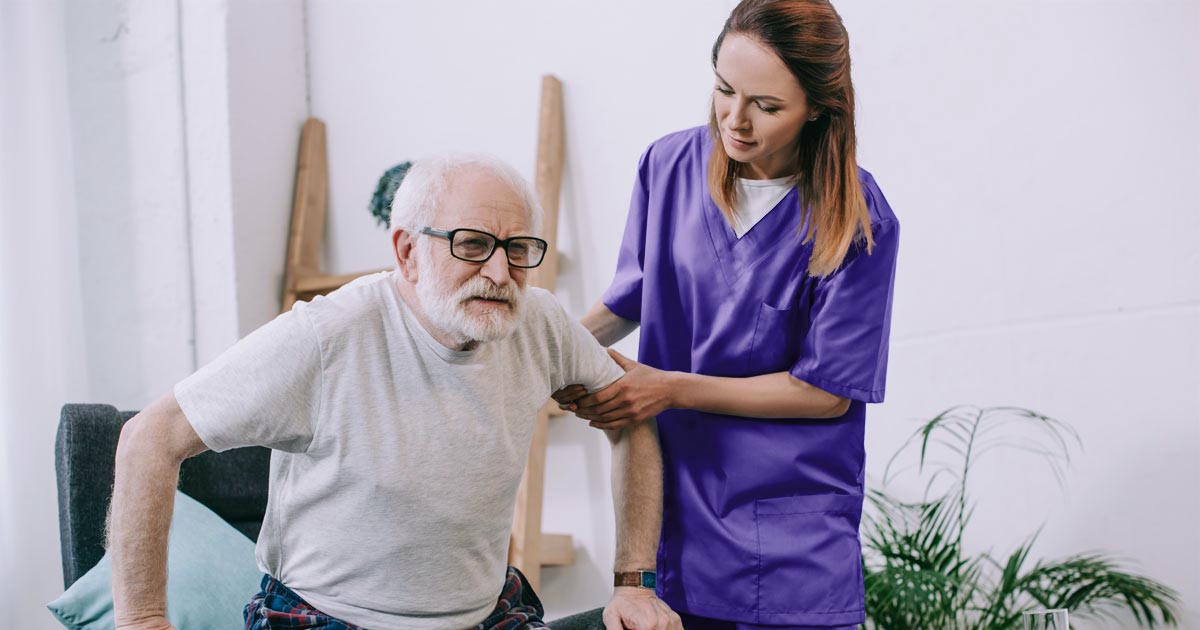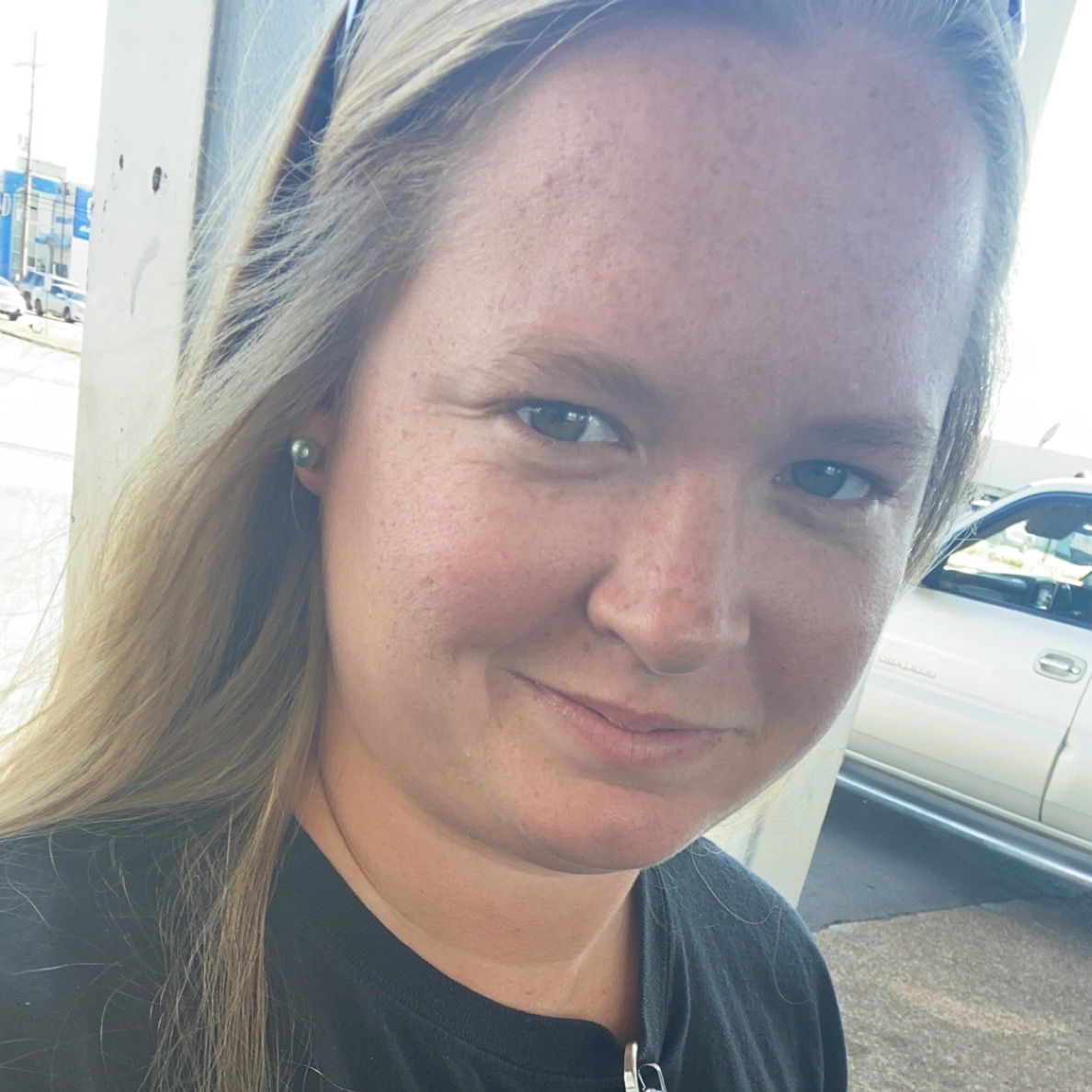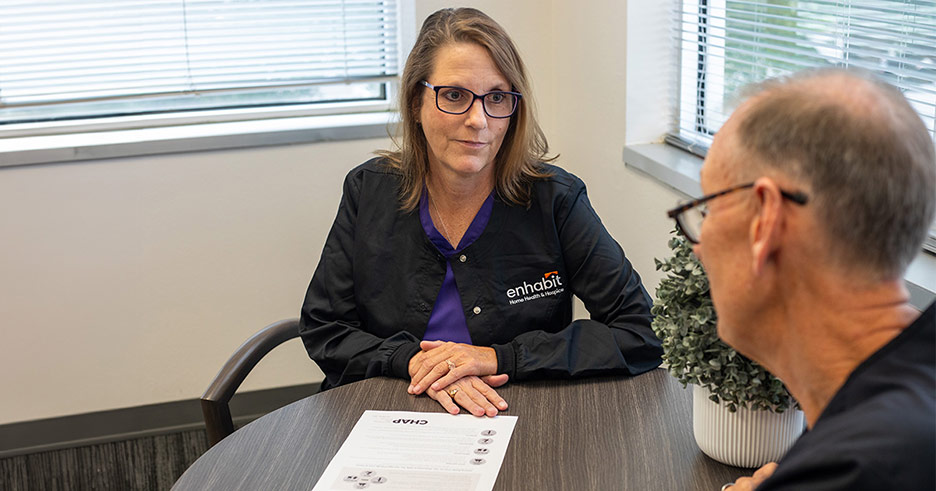Working in the hospice field can be challenging, but for all of its challenges, there are even more rewards. It takes a special, strong and compassionate person to be able to care for someone during the last months, weeks and days of their lives.
“Working with hospice patients is rewarding,” Candace, a hospice aide at Enhabit Home Health & Hospice, said. “Once you form a bond with them, they know that you’re going to help them enjoy the time they have left.”
Hospice aides play a critical role in a patient’s interdisciplinary team. They provide compassionate, hands-on care to ensure patients maintain comfort and dignity and the end of life. While providing personal care is a main tenet of the job, hospice aides also support the patient’s family as they navigate the hospice journey.
What does a hospice aide do?
Hospice aides provide patients with various personal care and comfort measures. These can include:
- Washing bedding
- Changing clothing
- Bathing patients
- Helping with hygienic routines such as brushing teeth or hair
- Keeping wound dressings clean and dry
- Providing light duty housekeeping
Hospice aides may also assist a patient’s loved ones by educating them how to go about performing basic care routines for their loved ones while keeping in mind the patient’s pain or comfort levels.
“In addition to helping patients shower or shave or painting their fingernails for them, I help their families understand how to cope with the end of life,” Candace said. “I always try to reassure the family that everyone on our team is there to take care of their family member and love on them during their last moments.”
Since a hospice aide provides non-medical care, they consult with supervising registered nurses or case managers on a regular basis and can report any identified needs or changes in the patient’s condition. This helps the hospice team take a coordinated approach to the patient’s care needs and how they can assist their loved ones.
The importance of a hospice aide
Hospice aides ensure the patient’s needs are met beyond just providing medical care, and their loved ones feel supported and confident in their abilities to take care of them.
When it comes to taking care of a family member, Candace recognizes that it can feel like an enormous effort for loved ones when trying to help the patient complete daily tasks.
Candace F., RN
Hospice aide
“Something as small as brushing a loved one’s hair can be overwhelming when your whole world is changing. The nurses focus more on the medication and the social worker focuses on community outreach and the chaplain on spiritual care. But whenever a person’s whole world is changing, as a hospice aide, I am able to take those big changes and break them down into small parts to help them feel more manageable.”
Oftentimes, hospice aides speak of how fulfilling their role is given they are with patients and their loved ones during the last days of life. Candace knows the impact her presence has on hospice patients and their families and she does everything with the patient’s dignity in mind.
“Patients are losing the ability to do everything on their own,” she said. “I try to make sure I keep their dignity while bathing them or washing their hair how they use to wash it. The first thing I tell my patients is that I am here to help them and we are going to try to do everything the way that you’ve always done it.”
How do I become a hospice aide?
Education and qualification requirements for hospice aides differ from state to state. Some states require aides to be certified nursing assistants, some require aides to be certified home health aides, and some require hospice aides to have a certain amount of clinical experience as a pre-requisite.
Although a hospice aide is not a skilled nursing position, you must have the ability to recognize the needs of people and maintain good relationships and communication – and have a positive attitude, according to Candace.
“No matter how bad your day is, go in to your patient’s homes with a positive attitude,” she said. “You would be surprised how much of a difference you make when you smile at your patients or ask how their day was. It really makes a huge difference in the care they trust us to provide and it opens them up, allowing us to do more for them and their families.”
To learn more about hospice career opportunities at Enhabit, search our open roles near you or sign up for job alerts by texting “CARE” to 98199.
Social Share
At Enhabit our patients are our number one priority. From providing the latest medical practices to building deep personal connections, we’re focused on upholding every patient’s dignity, humanity and sense of control on their health care journey.
Home health
Our home health services give patients access to the care they deserve in the comfort of their own homes. From disease and injury management to recovery from surgery, our clinicians help patients confidently achieve their healthcare goals.
Hospice care
Our hospice care services place importance on the comfort of every patient living with a terminal illness. Our caring professionals are dedicated to providing not just physical care, but spiritual and emotional support to every patient and their loved ones.







